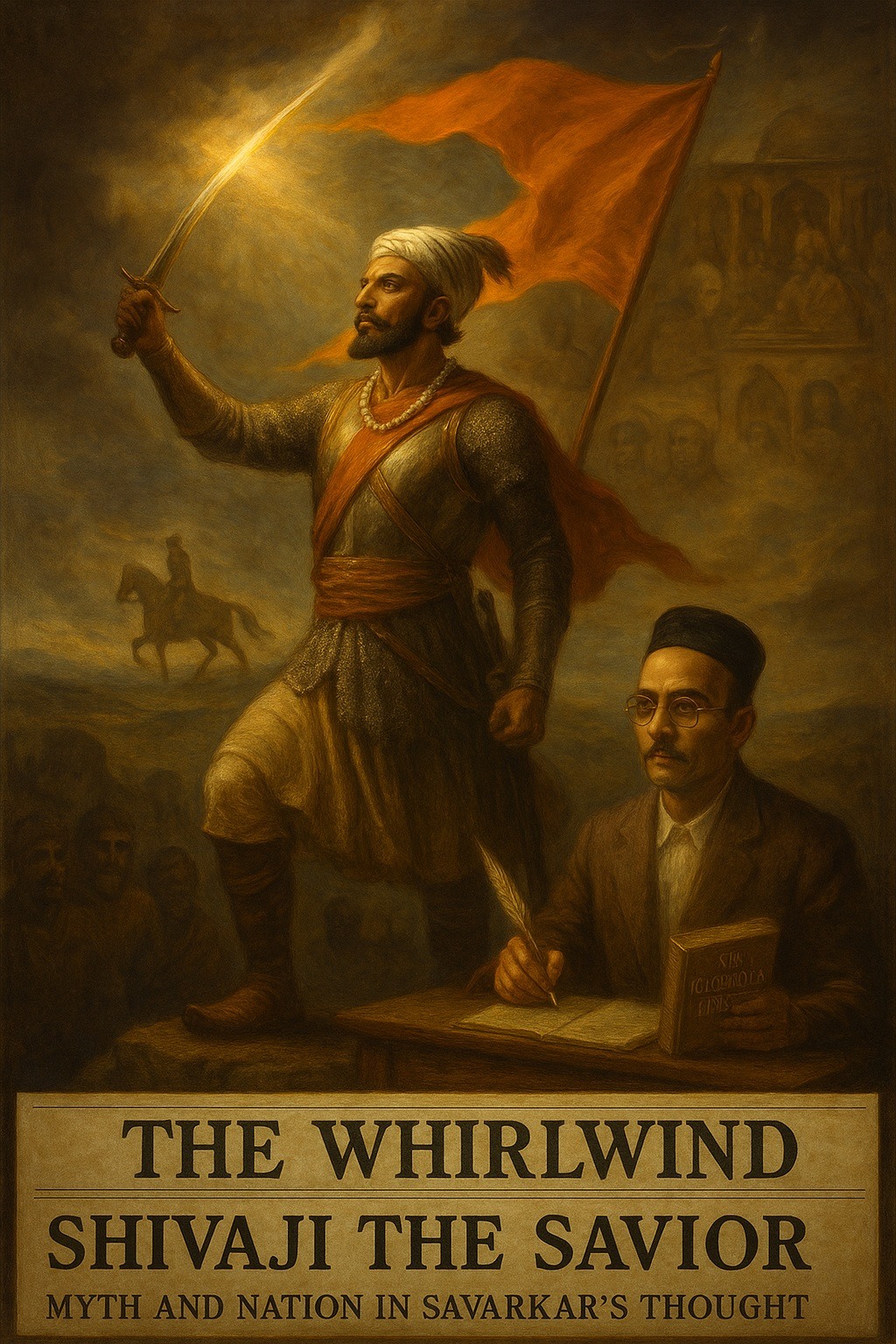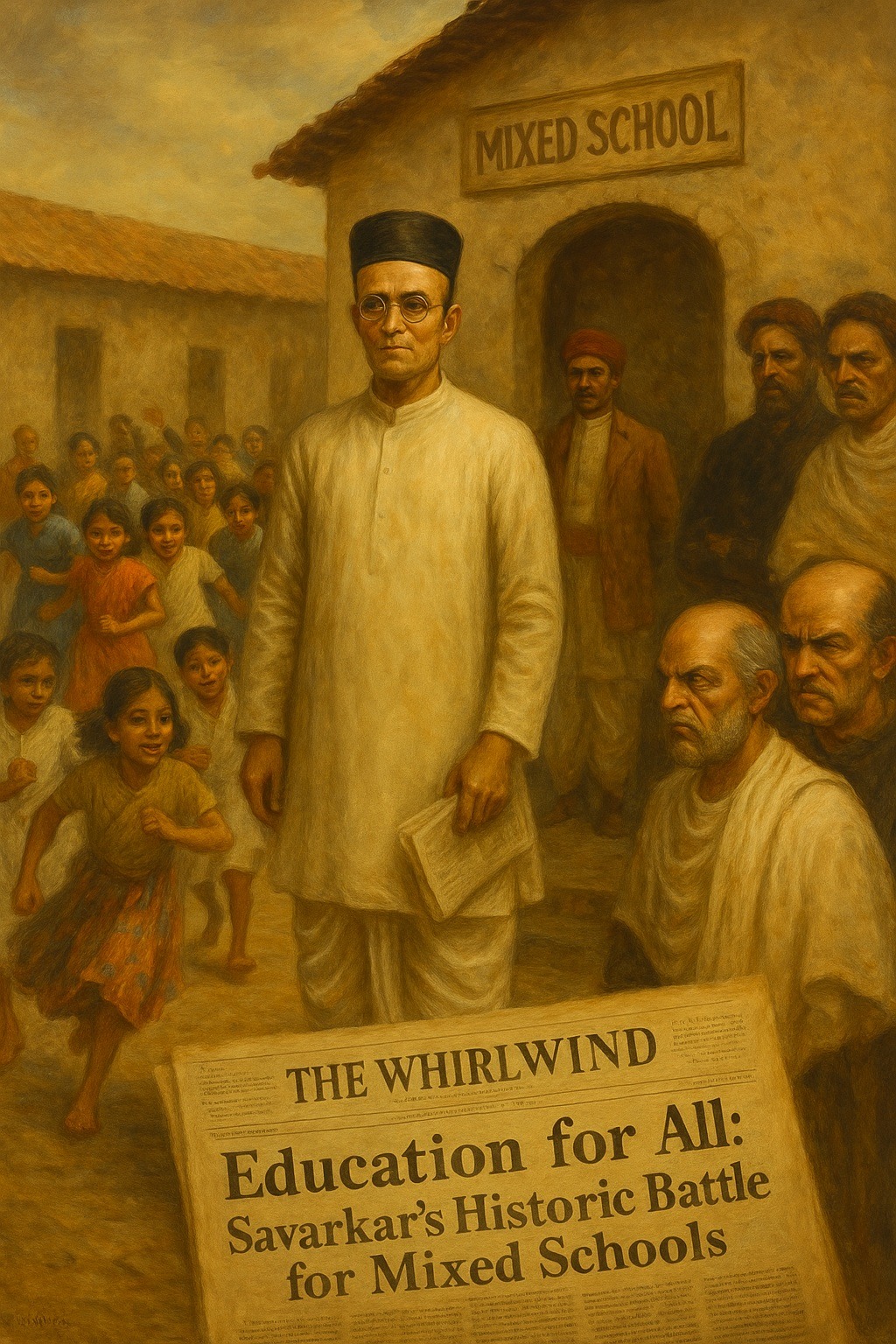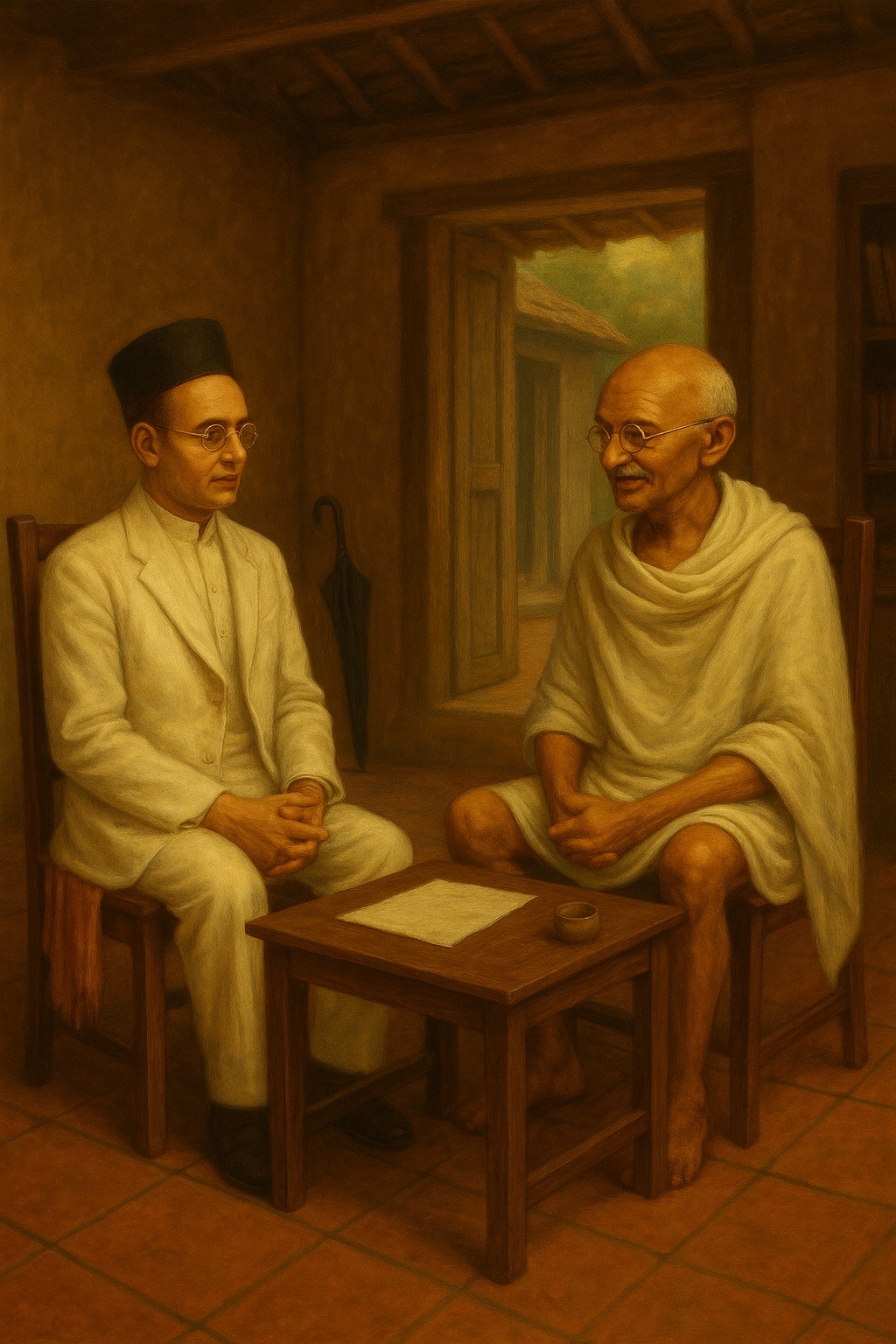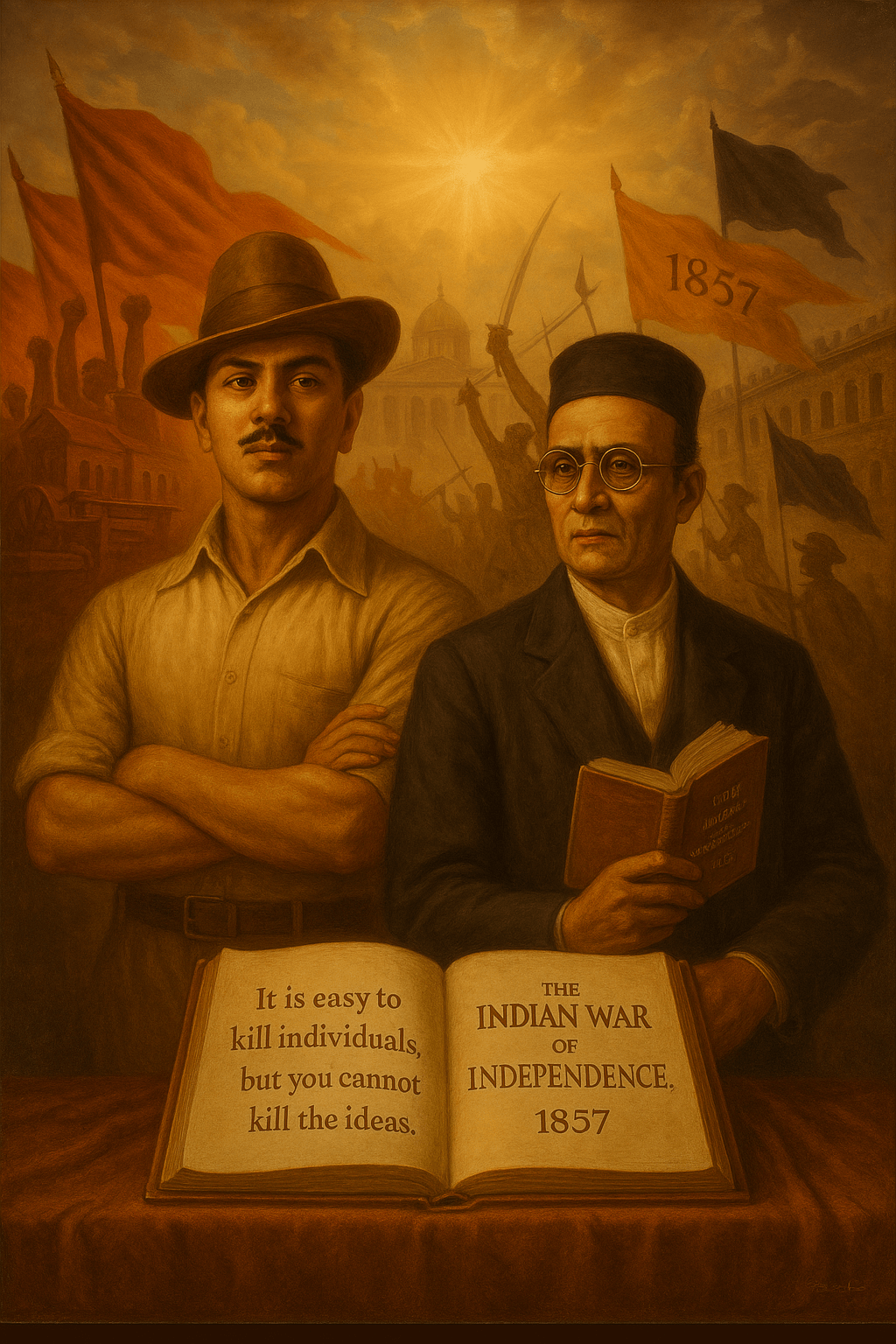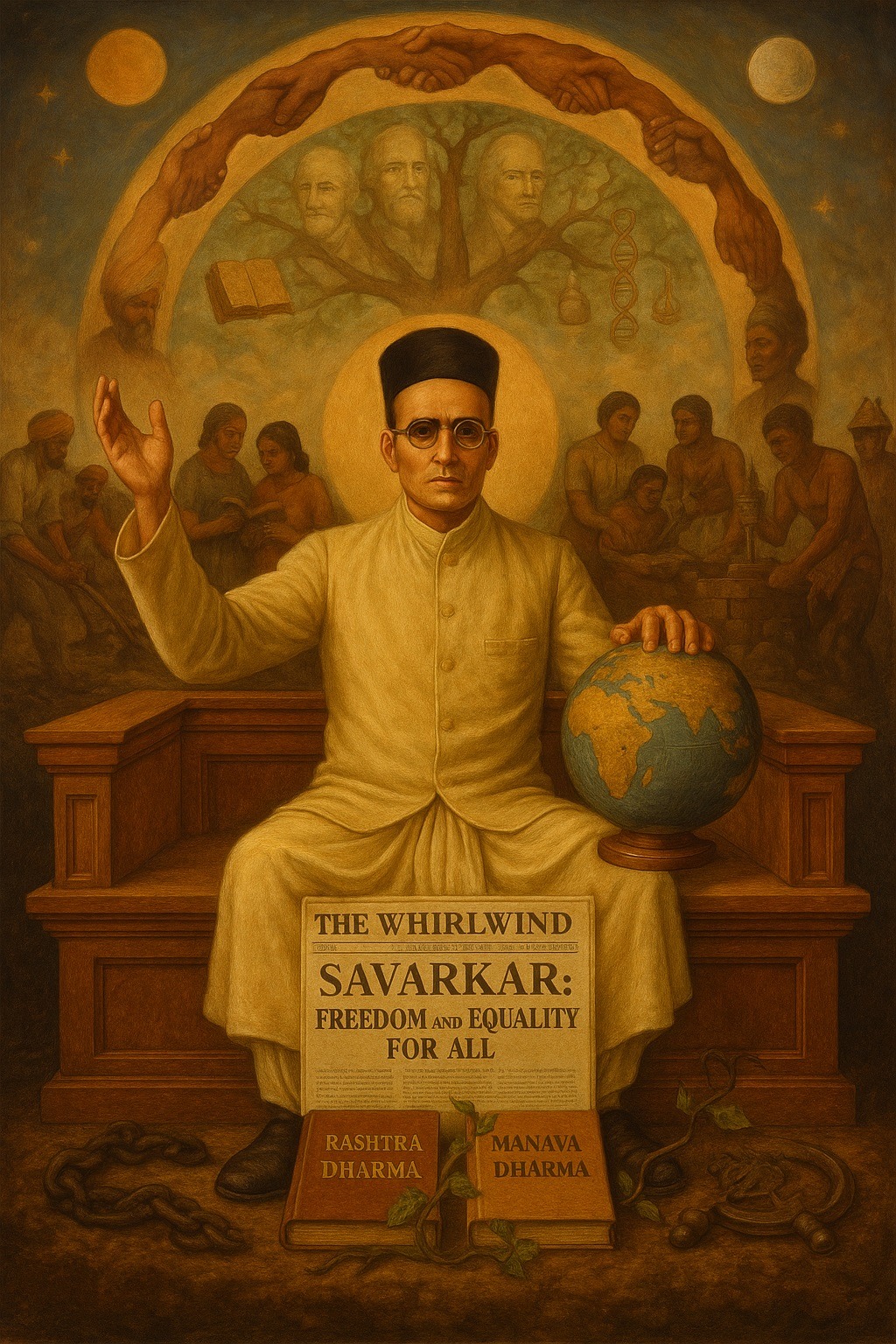Tag: PoliticalHistory
-
Today marks the birth anniversary (4 November 1845) of Vasudev Balwant Phadke, one of the pioneering figures who inaugurated the revolutionary era during British rule in India. Phadke raised a fighting force of about three hundred determined young men and waged a campaign of resistance against the colonial occupiers. At the heart of his struggle…
-
When Vinayak Damodar (Veer) Savarkar reflected on what holds a nation together, he looked beyond geography or race. For him, true national unity demanded not only shared ideals but also a shared language (a Rashtrabhasha) — a medium through which those ideals could live, circulate, and bind people together. Savarkar viewed communication as the ‘lifeblood…
-
Political Dimension of Hindutva, Part 13 Introduction – A Justification of “Relative Violence” Violence and non-violence have long been central themes in Indian philosophical and political thought. Vinayak Damodar (Veer) Savarkar, a key proponent of Hindutva, presented a unique discourse on the subject, arguing for a pragmatic approach to violence—what he termed “just, relative violence.”…
-
Savarkar’s Coding of Hindutva; Metacode Rashtra, Part 10; Code Myth (3/20); Codeelement Shivaji and Pan-Hinduism (1/15) Myth and Nation The German cultural theorist Andreas Dörner once argued that the most powerful idea modern societies use to hold themselves together is the concept of the nation. Without it, no state can sustain a sense of unity.…
-
Every year on October 2, India observes Gandhi Jayanti, the birth anniversary of Mohandas Karamchand Gandhi—revered as the Mahatma and remembered worldwide as an apostle of non-violence. Yet this day also invites a provocative question: if Vinayak Damodar (Veer) Savarkar were alive today, would he have commemorated Gandhi Jayanti? Respect Without Reverence It is conceivable…
-
Political Dimension of Hindutva, Part 10 Vinayak Damodar (Veer) Savarkar, a pivotal figure in the Indian independence movement and a proponent of Hindutva, offered a unique and controversial vision of democracy and governance for post-colonial India. His ideas, as encapsulated in his first draft constitution, reflect his belief in an India dominated by a unified…
-
Savarkar’s Philosophy & Worldview, Part 12; Savarkar’s Five Philosophical Dimensions (5/6) Vinayak Damodar (Veer) Savarkar embedded a profound sense of realism in his philosophy. Beyond mere pragmatism, his worldview was rooted in adaptability, acknowledging that no ideology, institution, or tradition is universally applicable across all times and circumstances. His understanding of human behavior was dynamic—what…




